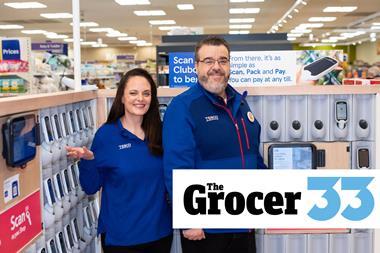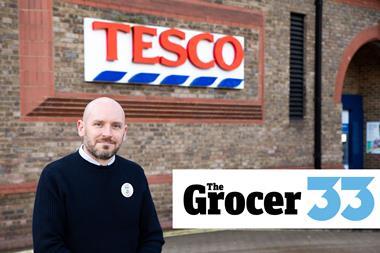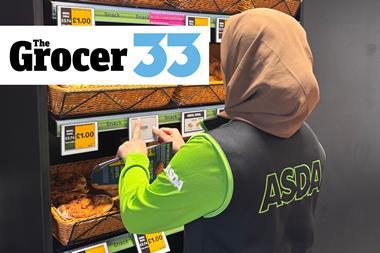With Tesco’s plan to improve its core chain, following Morrisons’ launch of ‘Fresh Formats’ and Asda’s commitments to fishmongers and butchers, the UK supermarket industry enters a phase of development where existing stores are the battlefield. The fresh food aisles look likely to be key as retailers seek to raise the bar on products, merchandising and service. And all of this is taking place as a retail revolution of sorts is growing online.
The improvements desired by the supermarkets come at a cost. In Tesco’s case it is a structural adjustment to its prevailing trading margin down from 6%-plus to circa 5.2%. Accordingly, about £200m will go on labour across its larger stores to improve availability, checkout and counter services. At Morrisons, the new Fresh Formats is visually impressive but requires a wholesale uplift in labour participation and potential wastage. All the while, industry volumes are falling for the second year in a row as inflation remains doggedly persistent and real incomes continue to fall.
Therefore, the risks associated with the strategies being pursued by Morrisons and Tesco are high. However, management know that they must fight harder for customers. So, Asda, Morrisons and Tesco seek to encroach on the traditional territory of M&S, Ocado, Sainsbury’s and Waitrose, while seeing off the deep discounters - Aldi, Iceland and Lidl - at the same time. As ever, the decision of one retailer will have implications and ramifications elsewhere.
Structurally weak demand is also curtailing the appetite of the supermarkets to open new space at the prevailing rate, with Tesco the latest to commit to a cutback, although Asda, M&S and Waitrose have already moved their goalposts. Less space leads to a more inward focus that is arguably a more efficient use of the retailers’ capital. But as long as real incomes fall and volumes are negative, the industry faces tough times and tough choices.
Perhaps the key sector questions at the moment are: can Morrisons and Tesco both succeed with their improvements? If so, what does that mean for the others? Overall, supermarkets in the UK may become better for the customer but poorer for investors.



















No comments yet